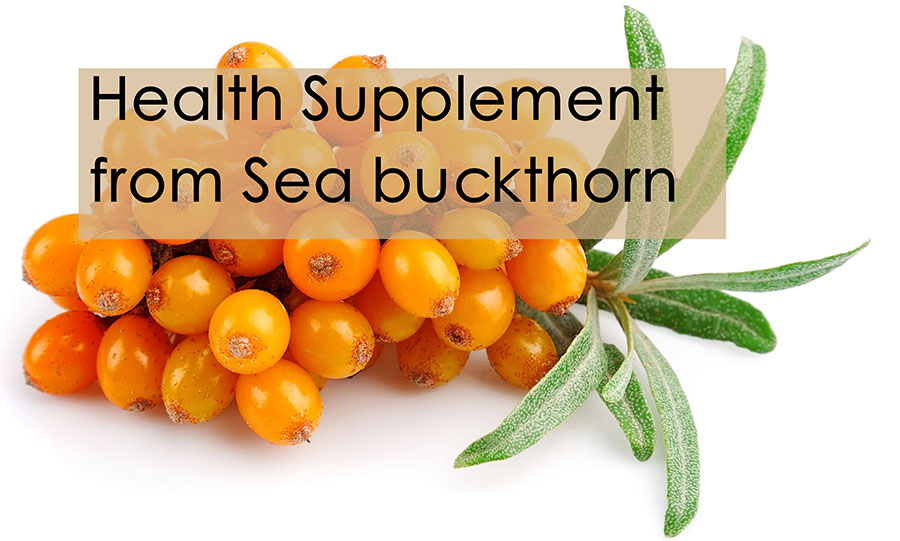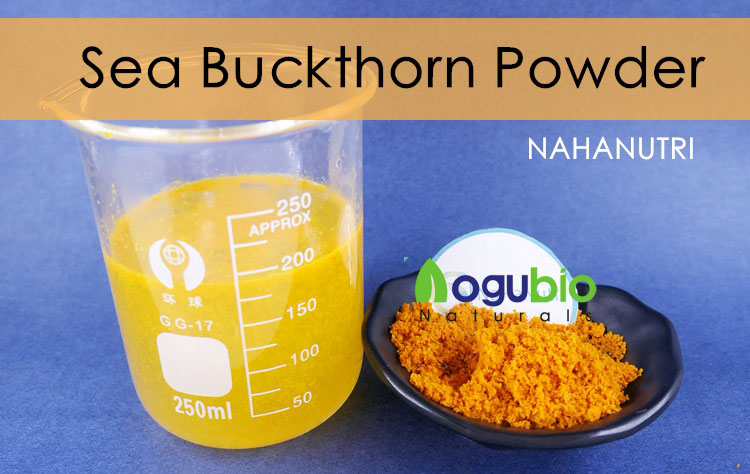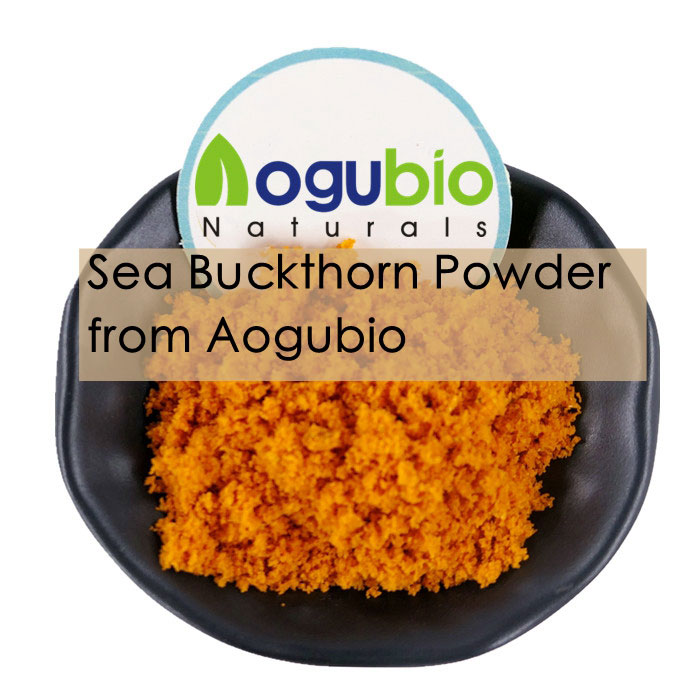What is Sea buckthorn?
Sea buckthorn (Hipphophae rhamnoides) is a thorny tree commonly found in Asia and Europe. Parts of the sea buckthorn tree have long been used in herbal medicine and cosmetics. The tree is thought to have medicinal properties, leading many people to use sea buckthorn in interesting ways, including jams, pies, and drinks.
Available in supplement form, sea buckthorn extract contains various essential fatty acids and antioxidants (including vitamin C, vitamin E, and anthocyanins)


Sea Buckthorn Powder Benefits
Rich in omegas (3, 6, 7, 9) – Wild sea buckthorn powder is one of the very few sources of omega-3 fatty acids, and the only single natural source of the combination of omega-6, -7, and -9 fatty acids. Thanks to its unique combination of omega fatty acids, sea buckthorn was found to control both “good” and “bad” cholesterol levels and promote a healthy heart.
Extremely high in Vitamin C – Wild sea buckthorn powder has one of the highest amounts of Vitamin C among all fruits and vegetables. In fact, it has 5-10 higher Vitamin C than orange and 3-5 times higher than kiwi. Vitamin C helps boost our immune system and fight against any seasonal flu infections.
Good source of Vitamins A, E, & K – Wild sea buckthorn powder is also a very good source of Vitamins A, E, & K.
Other health benefits – Sea buckthorn helps with skin and hair dryness and overall skin and hair health. In addition, sea buckthorn may help to reduce inflammation and support the liver to stay healthy.
Although the ancients have known the health advantages of eating sea buckthorn through repeated trial, error and observation, it is only now that we are uncovering the true, scientific health benefits of this powerful berry.
Accelerated healing of wounds, burns and other skin damage. Studies have shown Sea Buckthorn has an impressive nutritional profile. It contains significant amounts of Vitamin C (200-1,500mg/600mg of fruit) which help facilitate healing. Aside from accelerated healing, sea buckthorn berries also promote improved skin quality. In fact, it is known as a “beauty berry” because it keeps the skin healthier – all of it because of its claim of contribution to collagen formaton.
Packed with Antioxidants including Vitamin E. Naturally, body produces free radicals but there are factors that can likely accelerate the production and may cause imbalance which may contribute to the development of such chronic conditions, like cancer, diabetese and heart disease. If you think you have been tiring your heart out with too much work or of too much stress level that may cause imbalance between free radical and antioxidant activity, sea buckthorn berries can help you as its antioxidants can contribute protection from damage of cells, DNA proteins and lipids.
And because sea buckthorn berries offer vitamin E, iron, carotenoids, fatty acids, organic acids, super-charged antioxidants and hundreds of nutrients, including it in your diet is like taking a combination of fish oil and multi-vitamins all in one.
Uses of Sea Buckthorn
- Supplement use should be individualized and vetted by a healthcare professional, such as a registered dietitian, pharmacist, or doctor. No supplement is intended to treat, cure, or prevent disease.
- In herbal medicine, sea buckthorn has long been used to support the digestive system, enhance heart health, reduce inflammation, and treat skin disorders.
- Sea buckthorn oil has also gained popularity as an ingredient in various skin care products. When applied topically, sea buckthorn oil is thought to have many benefits.
- There is currently a lack of clinical trials testing both the medicinal and cosmetic effects of sea buckthorn. However, preliminary research has looked at several potential uses.
Dosage: How Much Sea Buckthorn Should I Take?
Always speak with a healthcare provider before taking a supplement to ensure that both the supplement and dosage are appropriate for your individual needs.
There is not enough scientific evidence about oral or topical sea buckthorn to determine safe or effective dosages.
In nonhuman animal studies, doses have ranged from 0.1 to more than 10 grams per kilogram of body weight.
But we cannot use animal studies as definitive evidence, which means more human studies on the safe dosage of sea buckthorn are needed.
The right dose for you may depend on a variety of factors including your age, gender, and medical health. Therefore, it's important to work with a healthcare provider to determine the best dosage for you.
Post time: Jan-09-2023





